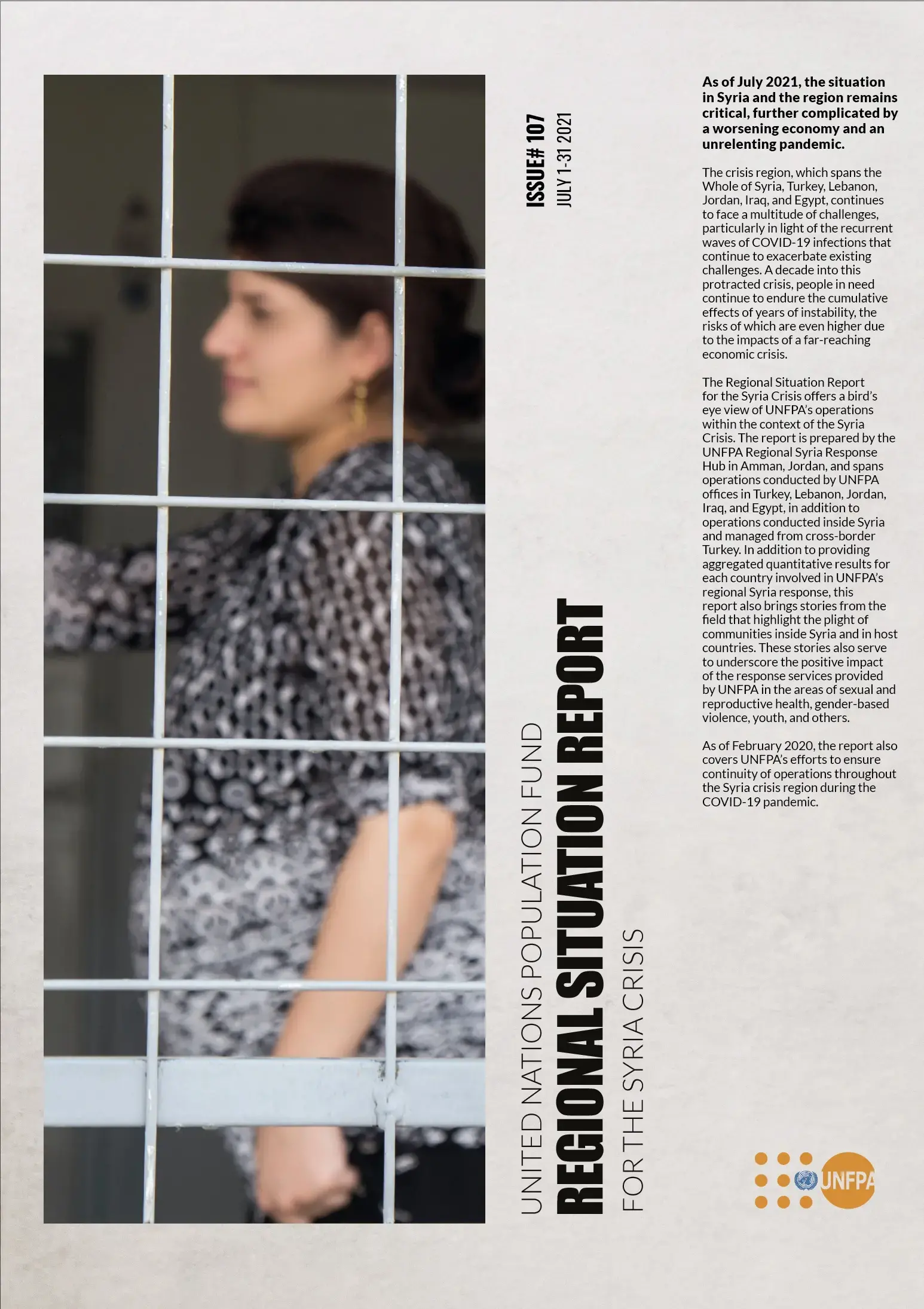Cairo/Istanbu/lBrussels, 23 September 2021 - The United Nations Population Fund Arab States (UNFPA ASRO), and Eastern Europe and Central Asia Regional Offices (UNFPA EECARO) launched a partnership with the European Society of Contraception and Reproductive Health (ESC). The new partnership will contribute to and enhance the achievements of the UN Sustainable Development Goals by improving the universal access to quality sexual and reproductive health and promoting reproductive rights as stated in the International Conference on Population and Development (ICPD) Programme of Action.
“The Eastern Europe and Central Asia region has seen significant achievements in implementing the ICPD Programme of Action. Still, challenges persist, and we see countries in the region lagging behind. Eight countries of the EECA region still have a high rate of unmet need for family planning, with modern contraceptive prevalence rates below 28%. We are confident that this partnership will help accelerate the progress in the Eastern Europe and Central Asia region." says UNFPA Regional Director for Eastern Europe and Central Asia, Alanna Armitage.
As part of the initiative, parties will work to promote all types of research in sexual and reproductive health and reproductive rights to ensure that the policy advocacy, guidance, capacity building and education provided are based on the best evidence and needs in the countries.
The new partnership between ESC and UNFPA Arab States and Eastern Europe and Central Asia regional offices creates a strategic opportunity to collectively support the sexual and reproductive health of women and girls across different contexts and regions.
“The Arab region is home to more than 400 million people, 28 percent of whom are young men and women under the age of 30. The fertility rate in the region is 3.5 children per woman compared to 2.5 globally. Such partnerships are crucial to ensure that people, including women, youth, adolescents and persons with disabilities, have access to sexual and reproductive health and enjoy their reproductive rights.” says UNFPA ASRO Regional Director, Dr. Luay Shabaneh.”Migration and other transboundary issues make this strategic partnership very timely in bringing together different regions and different expertise to ensure that women and girls have access to quality sexual and reproductive health services and the opportunity to fulfil their potential." adds Dr. Shabaneh
The cooperation also aims to support enhancing individual's and couple's choices of contraception, awareness of preconception health, and sexual relations that are safe and free from coercion in order to further universal access to comprehensive sexuality education and youth development for improved quality of life.
“The aspirations and ideals of the ESC and UNFPA are aligned --- both organizations striving to improve sexual and reproductive health through education together with timely and appropriate sexual and reproductive health services to meet the needs of individuals.” says ESC President Mary Short. “The Memorandum of understanding is just the start of a new and exciting partnership where both professional bodies will provide support and expertise to each other with the aim of making reproductive health choices a reality. The long-term goals will ensure the health of women and that they are able to achieve their full potential through education.” adds Dr. Short.
Through this agreement, parties will provide capacity building training to service providers and stakeholders tailored to respond to the national priority needs of countries. The training will focus on, but not limited to: up to date data and information related to family planning, information on contraceptive use and safety, sexually transmitted infections (Human Immunodeficiency Virus/Acquired Immune Deficiency Syndrome) preconception health, gender issues and discrimination, reproductive cancers, sexual and reproductive health needs among different groups, including adolescents, persons with disabilities, displaced populations and others.
###
About UNFPA
UNFPA - the United Nations sexual and reproductive health agency - works to deliver a world where every pregnancy is wanted, every childbirth is safe and every young person's potential is fulfilled. UNFPA was created in 1969; UNFPA works in more than 150 countries. UNFPA calls for the realization of reproductive rights for all and supports access to a wide range of sexual and reproductive health services – including voluntary family planning and maternal health care. In 2018, UNFPA launched efforts to achieve three transformative results, ambitions that promise to change the world for every man, woman and young person: Ending unmet need for family planning, Ending preventable maternal death, and Ending gender-based violence and harmful practices.
About ESC
Mission
The European Society of Contraception and Reproductive Health (ESC) is a leading professional society working collaboratively in Europe and beyond to champion evidence-based education and research in sexual and reproductive health and rights including facilitating people's informed decisions in choosing and using contraception.
Objectives
- to promote all types of research in sexual and reproductive health and rights to ensure that the education provided is based on the best evidence
- to collaborate with a range of non-governmental and governmental national and international organisations with similar objectives and values
- to remain the leading professional society in Europe in the field of sexual and reproductive health and rights enhancing individuals’ and couples’ choices of contraception'
For more information, please contact:
Samir Aldarabi, Regional Communication Adviser Arab States Regional Office: aldarabi@unfpa.org Cell:+201068484879
Jens-Hagen Eschenbächer, Regional Communications Adviser for Eastern Europe and Central Asia eschenbaecher@unfpa.org
Dr. Mary Short, President of the European Society of Contraception and Reproductive Health: 40rockcourtmedical@gmail.com




